Editor Katherine Mayfield and Intern Bonnie Irwin bring readers and writers The Maine Review, a new print/e/Kindle quarterly publishing short fiction, CNF, poetry, essays on writing, and black-and-white interior art. They also publish annual collections of short fiction (summer) and poetry (winter).
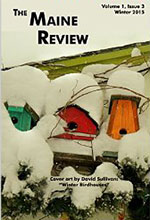 While the name, The Maine Review, seems obviously to represent the location of the publication, Mayfield tells me it was inspired “in the tradition of reviews like The Missouri Review and The Iowa Review. We felt that Maine needed a literary review representing the beauty and ruggedness of the Pine Tree State. Though we publish well-known and new and emerging authors from around the world, we feature the work of Maine artists on each issue’s cover. The Maine Review is a proud member of the Maine Writers & Publishers Alliance, a nonprofit membership organization that works to enrich the literary life and culture of Maine.”
While the name, The Maine Review, seems obviously to represent the location of the publication, Mayfield tells me it was inspired “in the tradition of reviews like The Missouri Review and The Iowa Review. We felt that Maine needed a literary review representing the beauty and ruggedness of the Pine Tree State. Though we publish well-known and new and emerging authors from around the world, we feature the work of Maine artists on each issue’s cover. The Maine Review is a proud member of the Maine Writers & Publishers Alliance, a nonprofit membership organization that works to enrich the literary life and culture of Maine.”
With such great role models already influencing this new publication, I asked Mayfield what motivated her to start her own journal, “Throughout my many years of writing and editing, I’ve seen so much excellent writing that never finds a home, and I wanted to give more writers the opportunity to be published. I also thoroughly enjoy putting the issues together – it’s like working a jigsaw puzzle, moving pieces around to get a good ‘flow.’ The Maine Review also provides a wonderful opportunity to showcase Maine artists.”
Mayfield also commented on what readers could expect to find in the publication: “Our mission is to publish quality writing that touches readers and engages their hearts, minds, and imaginations, expanding their view of the world and of life as a human being.” While the publication remains fairly “traditional” – not publishing genre horror or fantasy – Mayfield says they do look to feature humor in every issue.
Some recently featured authors include Author’s Guild President Roxanne Robinson, Maine Senior Poet Laureate Roger Finch, award-winning poets Annie Finch, Jason Michael MacLeod, Claire Scott, David Sloan, and Sean Sutherland.
In addition to the annual collections of short fiction and poetry, in the next year Mayfield says she’d like to publish an annual collection of CNF/memoir. Just now nearing the end their first year, The Maine Review looks forward to expanding the size and scope of the publication over the next few years.
The Maine Review holds contests and open reading periods. The next contest, for the Fall 2015 issue, will open in late May with a June 30th deadline. The contest for the annual poetry collection will open in autumn. The publication also has two open reading periods (no fee) each year for the Winter and Summer issues with submissions for those issues only accepted during the reading periods. See the publication’s website for more specific information. Submission is via the website and there is also a form available on the website for mailing submissions via USPS.
 The Robert Dana-Anhinga Prize for Poetry began in 1983 and is open to poets for a manuscript of original poetry in English. Held annually, winners receive $2000 and a reading tour of Florida colleges and universities.
The Robert Dana-Anhinga Prize for Poetry began in 1983 and is open to poets for a manuscript of original poetry in English. Held annually, winners receive $2000 and a reading tour of Florida colleges and universities.
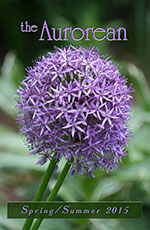
 Published from Amherst College, Massachusetts,
Published from Amherst College, Massachusetts, 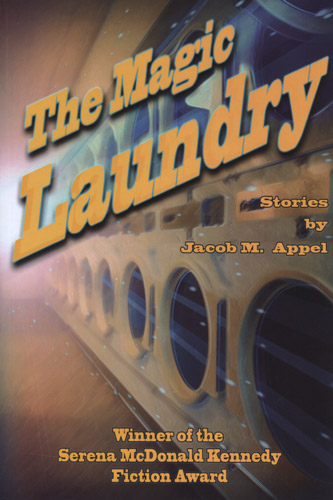 The Magic Laundry, by Jacob M. Appel won last year’s
The Magic Laundry, by Jacob M. Appel won last year’s  Gerald Stern is the featured poet in the latest issue of
Gerald Stern is the featured poet in the latest issue of  Fiction
Fiction To make art representing another victim’s pain can be ethically thorny. Susan Sontag wrote, “The appetite for pictures showing bodies in pain is as keen, almost, as the desire for ones that show bodies naked.” Images of suffering can arouse our horror, simulating an illusive identification between us and the victim or “a fantasy of witness” before we are conveniently deposited back into our lives so that someone else’s trauma becomes our personalized catharsis.
To make art representing another victim’s pain can be ethically thorny. Susan Sontag wrote, “The appetite for pictures showing bodies in pain is as keen, almost, as the desire for ones that show bodies naked.” Images of suffering can arouse our horror, simulating an illusive identification between us and the victim or “a fantasy of witness” before we are conveniently deposited back into our lives so that someone else’s trauma becomes our personalized catharsis.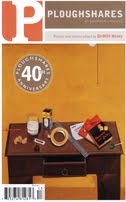 Publisher and editor Neil Astley, founder of Bloodaxe Books, guest-edits
Publisher and editor Neil Astley, founder of Bloodaxe Books, guest-edits  Robert Fanning, professor of creative writing at Central Michigan University, shares his manuscripts in process as well as the methods and sources of inspiration he used to draft them. His advice for burgeoning writers, poets in particular, is not the standard cookie-cutter words of wisdom you’ve heard elsewhere, and his refreshing approach to publishing will help you rethink Submission Sundays. And if you need a new playlist for writing, we have it.
Robert Fanning, professor of creative writing at Central Michigan University, shares his manuscripts in process as well as the methods and sources of inspiration he used to draft them. His advice for burgeoning writers, poets in particular, is not the standard cookie-cutter words of wisdom you’ve heard elsewhere, and his refreshing approach to publishing will help you rethink Submission Sundays. And if you need a new playlist for writing, we have it.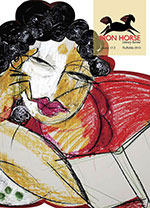 Two aspects of the annual
Two aspects of the annual 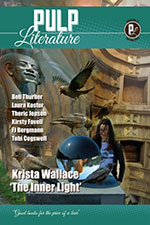
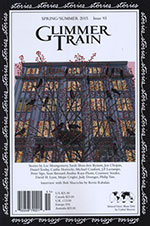 Both Lillian Li and Cristine Sneed offer advice on writing characters in their
Both Lillian Li and Cristine Sneed offer advice on writing characters in their 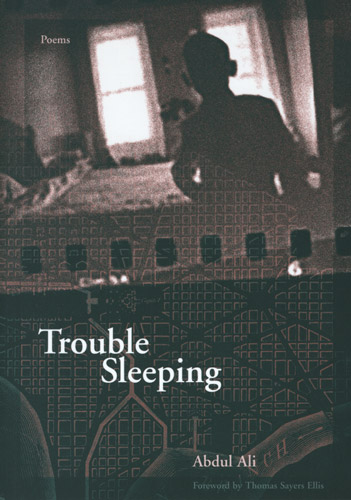 Trouble Sleeping by Abdul Ali, winner of the 2014
Trouble Sleeping by Abdul Ali, winner of the 2014 
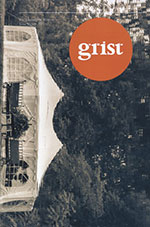 Grist: The Journal for Writers
Grist: The Journal for Writers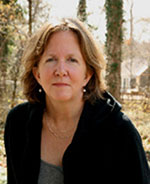 Winner
Winner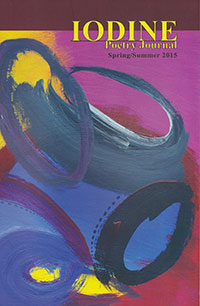

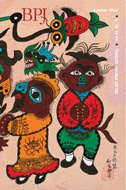
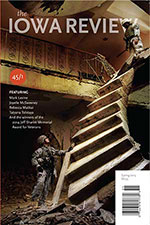
 While the name, The Maine Review, seems obviously to represent the location of the publication, Mayfield tells me it was inspired “in the tradition of reviews like The Missouri Review and
While the name, The Maine Review, seems obviously to represent the location of the publication, Mayfield tells me it was inspired “in the tradition of reviews like The Missouri Review and 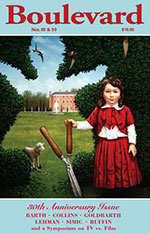 With its Spring 2015 issue,
With its Spring 2015 issue, 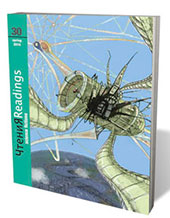
 The winner of
The winner of 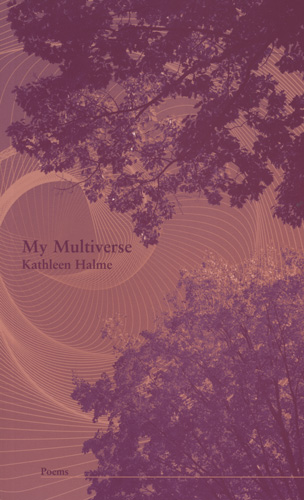 Winner of The 2014 Green Rose Prize from New Issues,
Winner of The 2014 Green Rose Prize from New Issues, 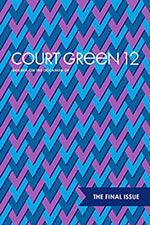 The magazine was named after Court Green, the property in Devon, England, where Sylvia Plath lived and where she wrote her most famous poems, the Ariel poems. The editors say, “We wanted Court Green the magazine to be like Court Green the property in England: a space open and vulnerable to the world, sometimes restlessly so, and a space for intellectual, emotional, and linguistic experimentation.” And so it has, for over a decade. For its final issue, the editors have “decided that the best elegy for the magazine might be to break Court Green’s long-standing rule that the magazine never publish the work of its faculty editors. To celebrate the 12 years of imaginative energy that the editors brought to the magazine, we decided to create a space for the editors’ poems. On the occasion, then, of Court Green‘s final issue, we present a selection of recent work by all of our current and past editors.”
The magazine was named after Court Green, the property in Devon, England, where Sylvia Plath lived and where she wrote her most famous poems, the Ariel poems. The editors say, “We wanted Court Green the magazine to be like Court Green the property in England: a space open and vulnerable to the world, sometimes restlessly so, and a space for intellectual, emotional, and linguistic experimentation.” And so it has, for over a decade. For its final issue, the editors have “decided that the best elegy for the magazine might be to break Court Green’s long-standing rule that the magazine never publish the work of its faculty editors. To celebrate the 12 years of imaginative energy that the editors brought to the magazine, we decided to create a space for the editors’ poems. On the occasion, then, of Court Green‘s final issue, we present a selection of recent work by all of our current and past editors.” “Eleven Stories of Water and Stone” by Aurvi Sharma is the winner of the
“Eleven Stories of Water and Stone” by Aurvi Sharma is the winner of the 
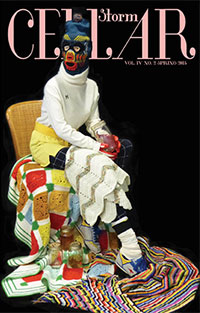
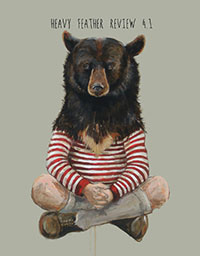
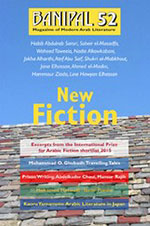 Ahmed el-Madini: Willow Alley, trans. Paul Starkey
Ahmed el-Madini: Willow Alley, trans. Paul Starkey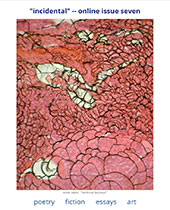 Based out of The William Paterson University of New Jersey Department of English,
Based out of The William Paterson University of New Jersey Department of English,  1st place goes to Lillian Li of Ann Arbor, MI [Photo credit: Christopher Wang]. She wins $1500 for “Parts of Summer” and her story will be published in Issue 96 of Glimmer Train Stories. This will be her first print publication.
1st place goes to Lillian Li of Ann Arbor, MI [Photo credit: Christopher Wang]. She wins $1500 for “Parts of Summer” and her story will be published in Issue 96 of Glimmer Train Stories. This will be her first print publication.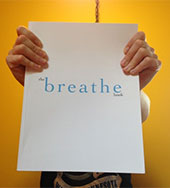
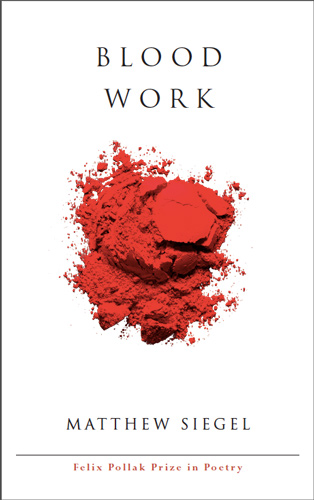 In his debut collection, Matthew Siegel explores his body’s fight with Crohn’s Disease and the struggle to remain one’s self in the face of illness. Winner of the University of Wisconsin Press’s 2015
In his debut collection, Matthew Siegel explores his body’s fight with Crohn’s Disease and the struggle to remain one’s self in the face of illness. Winner of the University of Wisconsin Press’s 2015  Editor Stephen Corey opens the Spring 2015 issue of
Editor Stephen Corey opens the Spring 2015 issue of